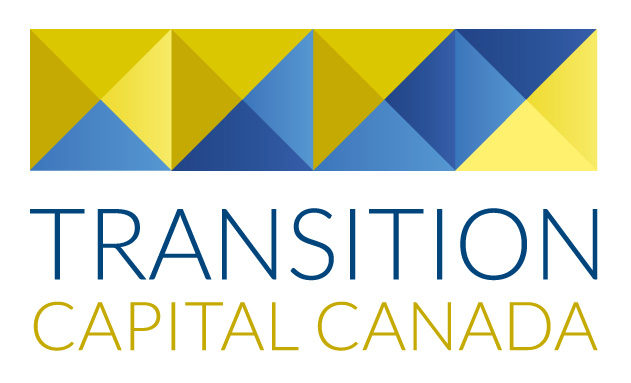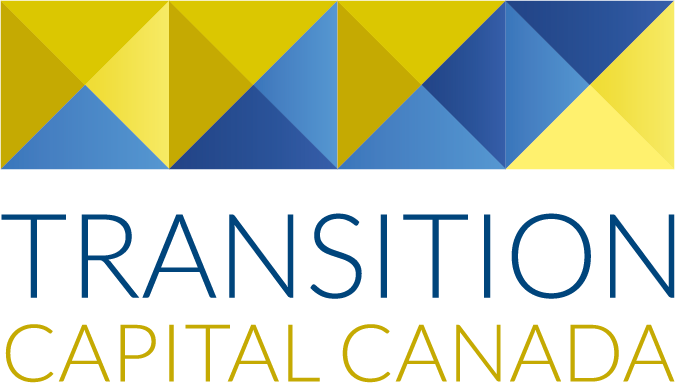Frequently Asked Questions
Transition Capital enables business owners of Canadian small and mid-sized companies to:
• Monetize a meaningful amount of the equity tied up in their company, and
• Still retain operational control over their business
Who is a good candidate for Transition Capital Canada?
An ideal candidate will be a business owner who wants the best of two worlds:
- Diversify wealth selling a material amount of the equity in their business and redirect it to their personal requirements.
- Raise that capital from a Private Equity or, Family Office investor that is willing to acquire a meaningful minority or control equity interest in the business and enable the selling shareholder to continue managing the business much the same as they have done in the past.
Benefits of a partial sale:
- Ensures that the company you built, managed, and drove to success, continues to flourish and expand in the future.
- Ability to continue growing your wealth by retaining a meaningful equity interest in your business.
- Protection for key management and employees who were loyal and instrumental in growing the business and creating shareholder
wealth.
Can you define meaningful capital?
Depending on the size of the company, $3 million to $25 million, or more.
What will be the source of that capital?
Proceeds from the sale of a meaningful
interest in the equity of your
business to a proven private equity (PE), or family office (FO) investor, or investors.
What are Private Equity, (PE) groups?
Well established private investment firms,
that control pools of capital (Funds) raised
from Pension Funds, Insurance Companies,
Banks, High Net Worth individuals,
and Family Offices.
What are Family Office, (FO) investors?
A Family Office (FO) is a private wealth management advisory firm that serves ultra-high net worth individuals. They offer a total solution to managing the financial and investing needs that can include acquiring private companies much like PEs.
How does the math work?
- The Enterprise Value (EV) of your Company is a function of its annual Free Cash Flow (EBITDA) and a multiple of that EBITDA that a buyer is willing to pay. The multiple is principally a function of the industry your company is in, the growth rate of your business and outlook.
- Multiples for private companies are generally in the 4x to 12x range.
Example: A debt-free company generating $4.0 million in EBITDA operating in the manufacturing sector attracting a 6x multiple, will generate an EV of $24 million. Selling 45% ownership of that business will generate proceeds of $10.8 million to selling shareholders.
Is minority ownership sufficient to attract PE or FO Investors?
While PEs and FOs traditionally aim to acquire 70% or more of the equity of a business, Transition Capital brings equity sources that focus on Meaningful Minority/Majority Investing. (ie. 30%-70%)
Given the seemingly abundant amount of Private Equity capital and scarce investment opportunities in the Canadian mid-market space, why is Transition Capital the most reliable source of private equity, especially in a minority divestiture?
There are over 500 Canadian Private Equity and Family offices, and more than 6,000 North American Private Equity (PE) firms. Very few of these investors genuinely want to invest as minority
shareholders. Transition Capital equity sources have a reputation for being fair, honest, and ethical team players that look to align with your capital requirements, strategic vision, and cultural fit. Transition Capital and its principals have financed well over 300 buy-out deals providing over $4 billion in capital.
What other key items should be considered to ensure a successful relationship?
Documenting the intention of shareholders
going forward including future potential
events that will include further investments to:
- Support growth.
- Make acquisitions.
- Purchase additional
equity from shareholders. - Changes of control, or potential exits for all
shareholders, including the sale of the business.
How do business owners partnering with substantial minority or majority PE and FO investors ensure they retain operational control over their businesses?
Business owners, with the assistance of Transition Capital, need to spend meaningful time on due diligence to ensure that all parties are compatible, have an alignment of interests, and that the arrangement going forward is properly documented to protect the interests of all shareholders.
What company characteristics make an ideal client for Transition Capital?
Transition Capital Canada targets Canadian small and mid-sized private companies with annual revenue of $5 million or more, and sustainable annual
Cash Flow (i.e., EBITDA) of $2.0 million or more.
What other aspects should be contemplated between shareholders?
The establishment of a Board of Directors
whose members / composition will reflect
the ownership structure of the company,
where all major company activities are
reported and approved, adhering to the
Shareholders Agreement, and ensuring all
company stakeholders’ interests are
respected (stakeholders include
shareholders, employees, banks, suppliers,
and customers).
How do I start the process?
It starts with a high-level conversation,
via Zoom, Teams, or in person to put a face-
to-a-name, agree that anything said is
confidential, get a brief description of our
respective companies, get some
understanding of what your desired capital
program might encompass, and determine
whether the personal chemistry of our
respective firms / people is a good fit.
What is the key document that will ensure a new majority / substantial minority partnership will work for all parties going forward?
The principle document will be
the Shareholders or Partnership Agreement
that will describe in detail the major
elements of operating the business going
forward. Significant areas needing
majority / minority partner support will
include:
- Senior management composition.
- Operational direction.
- Banking arrangements.
- Meaningful capital
investment (CAPEX) decisions. - Principle lines of business changes including corporate acquisitions.
- Financial and operational reporting.
- Other meaningful components that will materially impact the business in the future.
What is the difference between using PE or FOs versus traditional banking for raising capital?
In the context of raising capital to fund “money-out” personal capital requirements, such as dividends / shareholder distributions, there are generally 2 ways to raise that capital:
Equity
- Raising equity through the sale of shares of the Business imposes the least on-going financial burden on the Company, as there are no servicing requirements or maturity.
- Equity derives its repayment of capital and any upside, from the proceeds of a future sale of that equity, at then Fair Market Value.
Bank Financing or Senior Debt
- Leveraging your business by increasing its DEBT to fund a shareholder distribution is the cheapest form of capital, but there are limits to availability:
- Senior debt is constrained by covenants (IE Leverage, Debt Service, limits on Debt as a % of Enterprise Value (EV) ETC.).
- There is also a requirement to service senior debt with regular payments of principal and interest.
- There is a MATURITY (usually 5 years) that requires full repayment of principal
- Banks and Senior Lenders generally prefer to see senior debt used mainly to finance Working Capital, provide liquidity, fund Growth (CAPEX), ETC., and not shareholder distributions.
Assuming our first contact leads to a willingness to move forward, what would be next steps?
Transition Capital Canada will circulate a draft Engagement Letter that will incorporate:
- Mutual Non-Disclosure Agreement.
- Potential Enterprise Value (EV) ranges and the % of equity to be divested.
- Description of the information requirement for detailed due diligence that would normally be included in a comprehensive Confidential Information Memorandum CIM.
- Critical Path/process timing.
- Description of the Services to be rendered by Transition Capital Canada.
- Terms of the Engagement including period of exclusivity, fees, and expenses in undertaking this process.
What constitutes a meaningful equity interest?
30% to 70% of the ownership / equity of
your business.

